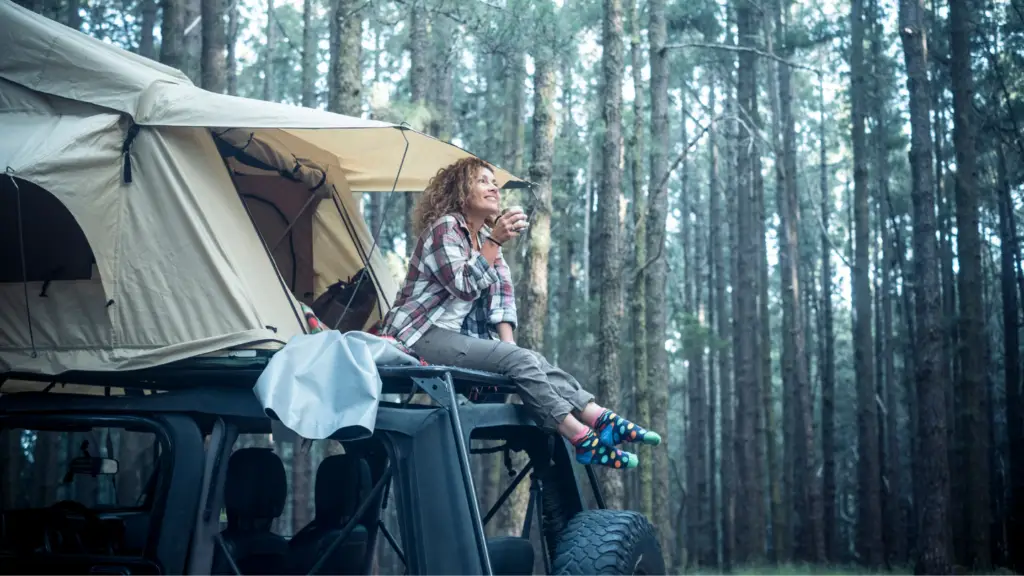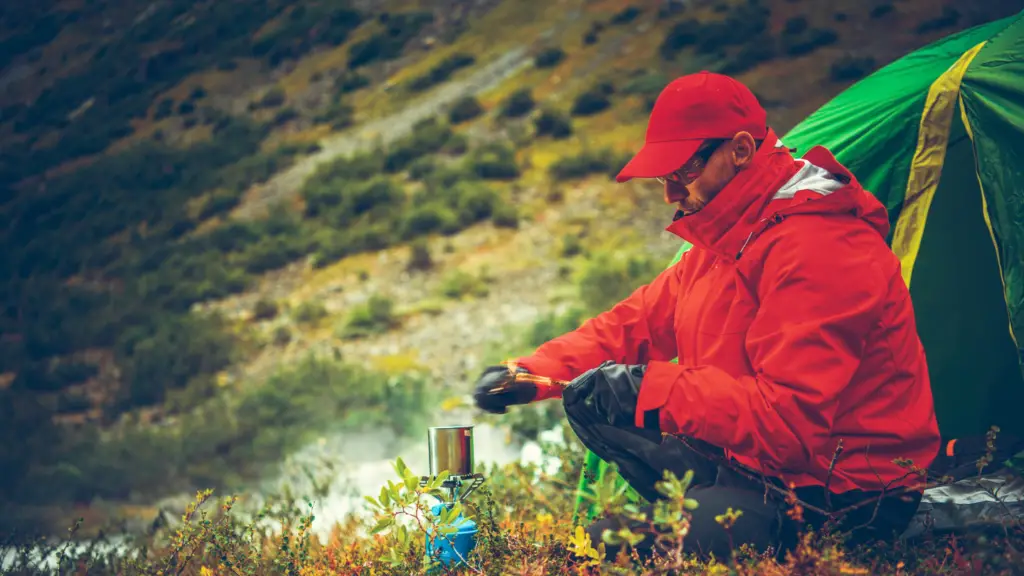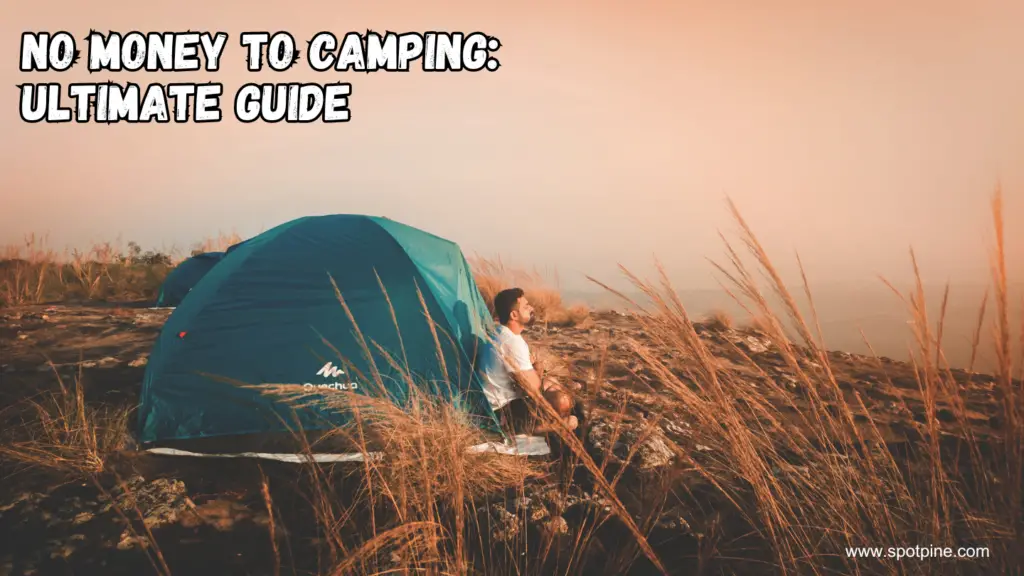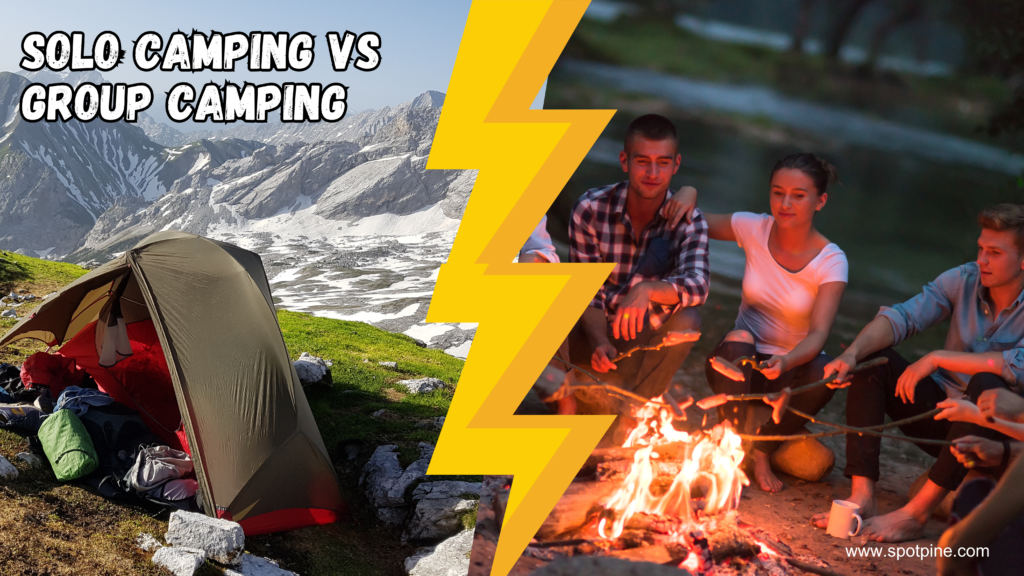If you have no money for camping, try car camping on a budget for a cost-effective outdoor experience. Save on camping costs by utilizing free campsites and preparing simple meals with affordable ingredients.
Additionally, consider volunteering at campsites for free access in exchange for work, making camping a more accessible option for those on a tight budget. By following these tips, you can enjoy the great outdoors without breaking the bank. Remember, camping is not only a budget-friendly way to travel but also a rewarding experience for those seeking adventure in nature.
Why Is Stealth Camping Illegal?
Stealth camping is often illegal due to concerns about loitering and potential stalking. While many places don’t allow it, there are legal and acceptable options in certain areas. Camping can be expensive due to fees for facilities and transportation, but there are ways to save money and make it a more economical travel option.
The Legality Of Stealth Camping
Stealth camping, also known as boondocking or wild camping, is an increasingly popular way to enjoy the great outdoors without the constraints of traditional campsites. However, many people wonder why this practice is often deemed illegal. The reality is, stealth camping exists in a legal gray area, with its legality varying from place to place.
Reasons For Banning Stealth Camping
There are several reasons why authorities and landowners prohibit stealth camping in certain areas. These reasons include:
1. Potential environmental damage: Stealth camping often involves camping in remote and sensitive natural areas, which can lead to environmental damage if not carried out responsibly. This includes leaving trash behind, damaging vegetation, and disturbing wildlife habitats. To protect these fragile ecosystems, many areas enforce bans on stealth camping.
2. Overcrowding and resource scarcity: Some popular stealth camping spots attract a large number of campers, especially during peak seasons. This can lead to overcrowding and strain on limited resources such as water, sanitation facilities, and parking spaces. By banning stealth camping, authorities aim to manage the number of visitors and preserve the available resources.
3. Public safety concerns: Stealth camping involves camping outside designated campsites, often in secluded areas. This can pose safety risks for both campers and the surrounding community. Unregulated camping can attract criminal activities, create fire hazards, and increase the risk of accidents or injuries. Banning stealth camping helps ensure public safety and accountability.
4. Protecting private property rights: Stealth camping often occurs on private land without the owner’s permission. This trespassing can infringe upon the rights of property owners and disrupt their privacy. To protect private property rights and prevent unauthorized use of land, stealth camping is frequently banned.
5. Preserving peace and tranquility: Stealth camping aims to provide campers with secluded and peaceful camping experiences. However, unrestricted stealth camping can lead to noise disturbances, excessive light pollution, and general lack of respect for others. To maintain the peace and tranquility of certain areas, authorities restrict stealth camping. It’s important to understand and respect the reasons behind the bans on stealth camping. By doing so, campers can contribute to the preservation of natural areas and ensure a harmonious coexistence with other visitors and landowners.
What Is A Stealth Camp?
Stealth camping involves parking a camper van or motorhome in any area without paying for a parking spot, from residential streets to countryside locations. It’s also known as boondocking, free camping, or wild camping, and offers a low-cost option for travelers.
Look at tips for saving money on camping to make it even more budget-friendly.
Definition Of Stealth Camping
Stealth camping involves parking your camper van or motorhome in any area without paying, from residential streets to remote countryside.
Other Terms For Stealth Camping
Stealth camping is also known as boondocking, free camping, or wild camping, all referring to the same practice.
Stealth camping is the act of parking your camper van or motorhome in any area without paying for a parking spot, ranging everywhere from residential streets to the middle of the countryside. It’s sometimes referred to as boondocking, free camping, or wild camping, but it’s all the same thing.
Why Does Camping Cost So Much?
Camping often costs a pretty penny due to fees for site usage and transportation expenses. These factors can quickly add up, making camping a potentially pricey endeavor. However, there are ways to enjoy camping on a budget with proper planning.
Factors Contributing To High Camping Costs
Many campsites charge a fee for use of their facilities and services. Transportation to and from the camping spot can be a costly venture, whether you’re taking a car or plane. All these factors contribute to why camping is often an expensive activity.
Stealth camping is the act of parking your camper van or motorhome in any area without paying for a parking spot, ranging everywhere from residential streets to the middle of the countryside. It’s sometimes referred to as boondocking, free camping, or wild camping, but it’s all the same thing.
Camping can be one of those economical ways to travel and vacation but, even so, there are still things you can do to make it even easier on the pocketbook and save money. Below you’ll find tips and tricks to help you save big on camping.

Is Camping The Cheapest Way To Travel?
While camping can be a budget-friendly travel option, there are ways to make it even more cost-effective. By implementing smart strategies and taking advantage of the benefits of camping for budget travel, you can enjoy a memorable trip without breaking the bank.
Benefits Of Camping For Budget Travel
- Camping allows you to save on accommodation costs.
- You can cook your meals at the campsite, reducing dining expenses.
- Enjoying nature and outdoor activities often come at no additional cost.
Tips For Saving Money On Camping
- Choose campsites with lower fees or consider free camping options.
- Bring your own camping gear to avoid rental costs.
- Plan meals ahead and pack non-perishable food items to cut down on grocery expenses.
- Utilize loyalty programs or discounts for campgrounds to reduce costs further.
How To Camp On A Budget
Camping is a fantastic way to connect with nature and enjoy the great outdoors. However, camping can sometimes be expensive, and not everyone has the budget to splurge on a fancy camping trip. But don’t worry, there are plenty of ways to camp on a budget and still have an unforgettable experience. In this article, we will explore some practical tips and tricks to help you camp without breaking the bank.
Volunteering Or Workamping
If you’re looking to save money on camping, volunteering or workamping is an excellent option. Many campgrounds and national parks offer volunteering opportunities where you can contribute your time and skills in exchange for a free campsite. Whether it’s cleaning campsites, assisting with maintenance, or working in visitor services, volunteering allows you to enjoy camping without spending a dime on accommodation.
Saving Money On Meals
Food is another significant expense when camping, but there are smart ways to save money on meals. Instead of dining out or buying pre-packaged foods, consider cooking your meals at the campsite. Plan your meals in advance and make a grocery list, so you only buy what you need. Opt for simple and budget-friendly recipes that require minimal ingredients. Bring along a cooler with perishables and pack non-perishable items like canned goods and snacks. With a bit of planning, you can enjoy delicious meals without emptying your wallet.
Finding Free Camping Sites
One of the best ways to camp on a budget is to find free camping sites. There are numerous public lands, such as national forests and Bureau of Land Management (BLM) areas, that allow free camping. These public lands often offer basic amenities like pit toilets and fire rings, providing a rustic camping experience. Additionally, some private campgrounds and RV parks offer free camping for a night or two to attract customers. Research online, check out camping forums, and download camping apps to discover these hidden gems of free camping.
Read More To Know How To Plan a Solo Camping Trip On a Budget
Tips For Wild Camping
Experience the thrill of wild camping without breaking the bank with these budget-friendly tips. From finding free campsites to volunteering in exchange for accommodation, there are plenty of ways to enjoy the great outdoors without spending a fortune.
Overcoming Challenges Of Wild Camping
Wild camping can be an incredible adventure that allows you to connect with nature on a deeper level. However, it also presents its challenges. Here are some tips to help you overcome the challenges of wild camping:

Resources For Finding Free Camping Areas
When it comes to wild camping on a tight budget, finding free camping areas is essential. Here are some resources to help you locate these hidden gems:
| Resource | Description |
| FreeCampsites.net | Provides a comprehensive database of free camping sites across the country. |
| U.S. Forest Service Website | Offers information on national forests and grasslands where dispersed camping is allowed. |
| Bureau of Land Management Website | Provides details on public lands where camping is permitted at no cost. |
| AllStays App | An app that helps you find free campsites, including those on public lands and some private properties. |
To ensure a smooth and enjoyable wild camping experience, always check the rules and regulations of the area you plan to camp in.
By utilizing these resources, you can find amazing camping spots without breaking the bank.
Here are some quick tips for finding free camping areas:
- Research and plan your trip in advance.
- Look for public lands and national forests that allow dispersed camping.
- Check out online forums and communities for recommendations from experienced campers.
- Consider camping near trailheads, as they often have designated areas for overnight stays.
- Avoid camping in areas that are clearly marked as private property or restricted.
Remember, with a little effort and research, you can embark on an incredible adventure without spending a fortune.
FAQs:
Why Is Stealth Camping Illegal?
Stealth camping is usually illegal to prevent loitering and stalking. While it is generally harmless, many places do not allow it. However, there are some locations where it is legal and acceptable.
Why Does Camping Cost So Much?
Camping can be expensive due to fees for facilities and services at campsites. Transportation costs to and from the camping spot also contribute to the overall cost.
What Is A Stealth Camp?
A stealth camp is parking a camper without paying, like boondocking or wild camping, often in a residential area or countryside.
Is Camping The Cheapest Way To Travel?
Camping can be one of the cheapest ways to travel and vacation, with opportunities to save money on meals and accommodation. Making a plan and looking for volunteer or workamping positions can help reduce costs even further.
Conclusion
Camping on a budget is possible with smart planning. Try out workamping or volunteer positions for free access. Save money on meals by opting for budget-friendly options like ground meat and vegetables. Remember, camping doesn’t have to break the bank if you’re willing to explore creative alternatives.
Enjoy your budget-friendly outdoor adventures!



